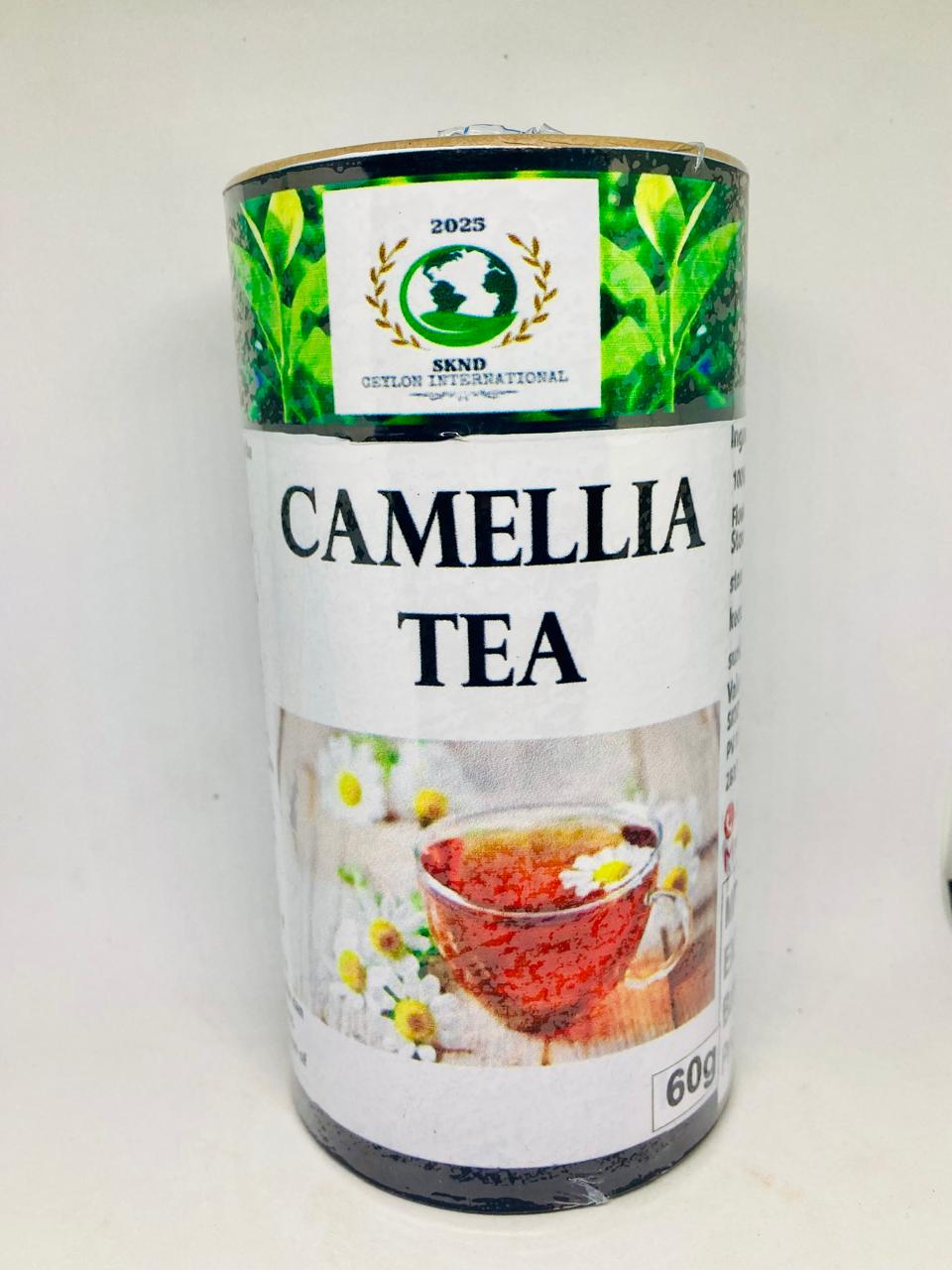No products in the cart.
Camellia tea generally refers to tea made from the Camellia sinensis plant, which is the source of all traditional teas: green, black, white, oolong, and pu-erh tea. The specific health benefits vary slightly by type (due to different processing methods), but all share some core benefits due to their natural compounds.
Core Health Benefits of Camellia Tea
1. Rich in Antioxidants
• Contains polyphenols such as catechins (especially EGCG in green tea), theaflavins, and thearubigins.
• Help reduce oxidative stress and protect cells from damage.
2. Heart Health
• May lower LDL (“bad”) cholesterol and triglycerides.
• Improves endothelial function and reduces blood pressure slightly.
• Associated with reduced risk of heart disease and stroke with regular consumption.
3. Cognitive Benefits
• Contains L-theanine, an amino acid that promotes relaxation and improves focus when combined with caffeine.
• May reduce risk of neurodegenerative diseases (e.g., Alzheimer’s, Parkinson’s) through antioxidant and anti-inflammatory effects.
4. Weight Management
• Green and oolong teas may boost metabolism slightly and increase fat oxidation.
• Some studies suggest benefits in weight loss and maintenance when combined with a healthy lifestyle.
5. Cancer Prevention (Potential)
• Antioxidants like EGCG have been studied for potential anti-cancer effects.
• Lab studies are promising, but human evidence is mixed and still under investigation.
6. Diabetes Support
• May improve insulin sensitivity and help regulate blood sugar levels.
• Green tea, in particular, is often highlighted for this benefit.
7. Anti-inflammatory and Immune Support
• Polyphenols help modulate inflammation.
• Some evidence supports improved immune response, especially with green tea.
8. Oral Health
• Antibacterial properties may help reduce dental plaque and fight bad breath.
• Fluoride and catechins can contribute to stronger teeth and gums.
⸻
Type-Specific Highlights
• Green Tea: Highest in catechins, especially EGCG; great for metabolism and cardiovascular health.
• Black Tea: Rich in theaflavins and thearubigins; may be better for cholesterol.
• Oolong Tea: A middle ground; may support weight loss and mental alertness.
• White Tea: Minimally processed; very high in antioxidants; gentle on the stomach.
• Pu-erh Tea: Fermented; may aid digestion and reduce cholesterol.
⸻
Considerations & Precautions
• Caffeine: Can cause insomnia, jitteriness, or heart palpitations if overconsumed.
• Tannins: May interfere with iron absorption if consumed in large amounts with meals.
• Additives: Bottled or flavored teas may contain sugar or artificial ingredients—opt for pure loose-leaf or bagged teas.
Would you like help choosing a type of Camellia tea based on a specific health goal (e.g., weight loss, focus, immunity)?
Additional information
| Weight | 0.60 kg |
|---|



Reviews
There are no reviews yet.